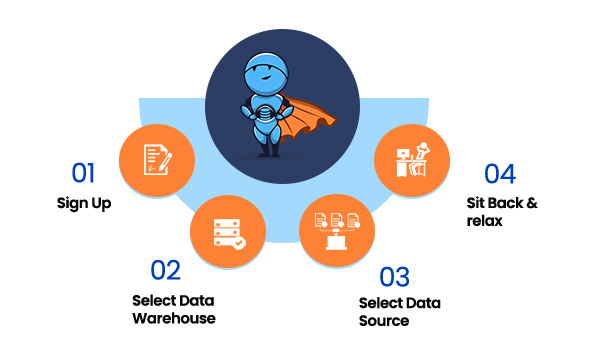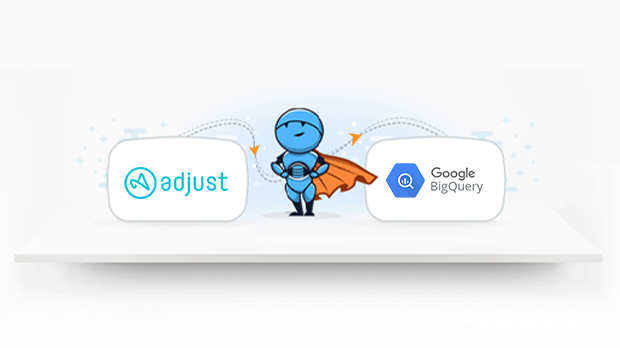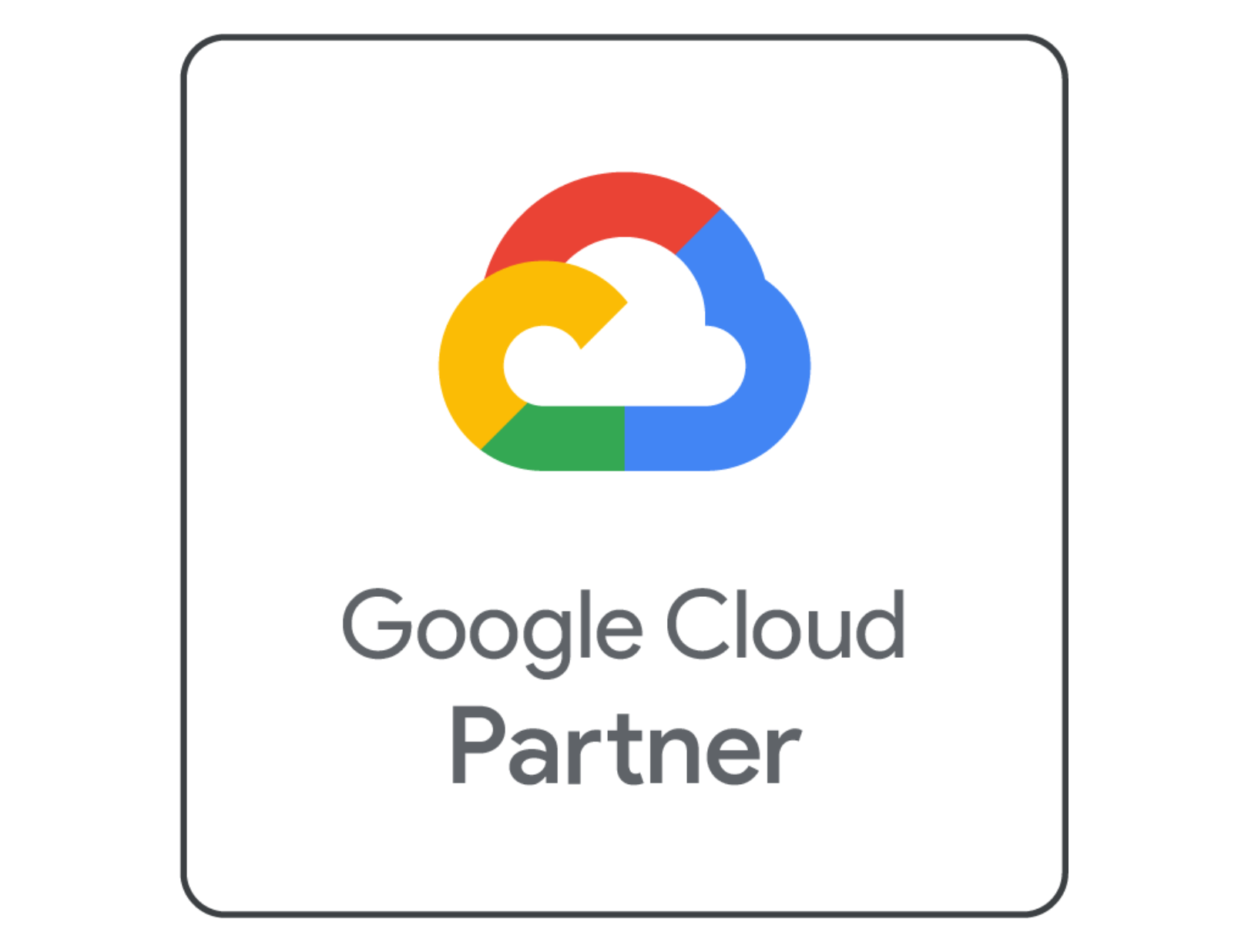Replicate Adjust to Google Bigquery in minutes
Are you looking for quicker data transfer from Adjust to Google Bigquery? Here is an easy solution for this data migration process using an ETL tool: Daton.
A data-driven approach is of paramount importance for businesses in this era of digitalization. E-Commerce companies need to utilize their data to the fullest to stay ahead of their competition, reduce operational costs, increase efficiency and get better insights to make informed business decisions. It is common for companies to use mobile measurement platforms like Adjust for effective mobile ad campaigns. Adjust offers a fully automated and preventative solution against mobile ad fraud. It prevents click fraud from affecting your valuable data and budget in mobile ads. E-commerce companies that sell globally often have separate ad accounts for each country, creating various data silos. Consolidating these data from these accounts for effective reporting and comprehensively analyzing the entire business data becomes challenging. Data Savvy eCommerce businesses always integrate data from all sources into a cloud data warehouse like Google Bigquery to reduce efforts on analysis and reporting.
Why integrate Adjust to Google Bigquery
Adjust marketing platform generates data like mobile app performance, user engagement, cross-channel attribution, hyper-engagement, click spam, audience targeting, click injection, and IP address monitoring. The lack of specific data is one of the many reasons why mobile ads do not return a better revenue. Collect more data from different sources for more personalized mobile ad creation and use it in your mobile marketing campaigns. If you load Adjust data in the same cloud data warehouse as your marketing, support, and sales data, it will help you get an accurate idea of your mobile marketing campaigns.
Compiling and processing data from different sources for thorough analysis have considerable challenges when you do it manually. Modern businesses use a cloud data pipeline and data warehouse like Google Bigquery to consolidate all the data. Consolidation helps to make faster analysis and reporting. Daton is an automated data pipeline that easily migrates data from Adjust into Bigquery without any coding or maintenance. It will enable you to make the most of Adjust BigQuery connector by offering deeper insights into your mobile marketing.
Adjust Overview
Adjust is a mobile marketing platform designed for mobile app marketers. It is a mobile attribution modeling solution with powerful features of tracking marketing channels and source attributing for customers. Adjust enables users to understand and analyze events done in the client’s apps using different tools. The platform offers measurement, cybersecurity, fraud prevention, and marketing automation products. Each tool aims at making mobile marketing simpler, smarter, and more secure. Leading brands such as Procter & Gamble, Rocket Internet, Tencent Games, and 50000 other companies use Adjust to optimize mobile marketing campaigns better.
Google Bigquery Overview
Google BigQuery is the first serverless data warehouse service available in the market. A database administrator architects the schema and optimize the partitions for performance and cost in a Google BigQuery environment. This cloud service automatically scales to fulfill any demands of a query. Google BigQuery service offers an excellent pricing model based on the amount of data processed by incoming queries, not on the storage or the compute capacity for processing queries. The best part about using Google BigQuery is that you can instantly load data to the service as soon as you start using it. The primary requirements are a mechanism to load data into the data warehouse and the ability to write SQL queries.
How to replicate Adjust to Google Bigquery
You can replicate Adjust to Google Bigquery warehouse in two ways.
Build a Data Pipeline
This process needs a lot of experience and consumes time and manpower. The chances of errors are more. You need to extract data using Adjust APIs & then connect it properly with the Google Bigquery data warehouse.
Use Daton to integrate Adjust & Google Bigquery
Using Daton to integrate Adjust & Google Bigquery is the fastest & easiest way to save your time and effort. Leveraging an eCommerce data pipeline like Daton significantly accelerates and simplifies the time required to build automated reporting.
Configuring data replication on Daton only takes a few minutes and clicks. You won’t require any code or manage any infrastructure, yet they can access their Adjust data in a few hours.
Daton is easy and simple to use. The interface allows analysts and developers to use UI elements to configure data replication from Adjust data into Google Bigquery.
Daton takes care of:
- Authentication
- Rate limits,
- Sampling,
- Historical data load,
- Incremental data load,
- Table creation, deletion &reloads,
- Refreshing access tokens,
- Notifications
And many more important features to help analysts focus more on data analysis rather than worry about data migration.
Steps to Integrate Adjust with Daton

- Sign in to Daton
- Select Adjust from the Integrations page
- Provide Integration Name, Replication Frequency, and History. The integration name cannot be changed later as it would be used to create integration tables.
- You will be redirected to the Adjust login page for authorizing Daton to extract data periodically.
- Post successful authentication, you will be prompted to choose from the list of available Adjust accounts
- Select the required tables from the available list of tables
- Then select all required fields for each tableSubmit the integration
For more information on Adjust Connector, you can visit the linked article.
Sign up for a trial of Daton Today!
Here are more reasons to explore Daton for Adjust to Google Bigquery Integration
- Faster Integration of Adjust to Google Bigquery– Adjust to Google Bigquery is one of the integrations Daton can handle very fast and seamlessly. By following a few steps, you can easily connect Adjust to Google Bigquery.
- Zero Maintenance: Daton takes care of all the data replication processes and infrastructure once you sign up for a Daton account and configure the data sources. You don’t need to manage any infrastructure or write codes.
- You get an incredibly friendly customer support team who ensures you leave the data engineering to Daton and focus on analysis and insights.
- Daton is an Enterprise-grade data pipeline that helps every business become data-driven at an unbeatable price. Get started today for just $10 with a single integration and scale up as your demands increase.
- Robust Scheduling Options: this allows you to schedule jobs based on their requirements using a simple configuration step.
- Daton supports popular cloud data warehouses like Snowflake, Google Bigquery, Amazon Redshift, Oracle Autonomous Data Warehouse, PostgreSQL, and more.
- Flexible loading options allow optimizing data loading behavior to maximize storage utilization and ease of querying.
- Enterprise-grade encryption gives your peace of mind.
- Support for 100+ data sources: In addition to Adjust, Daton can extract data from various resources like Databases, Sales and Marketing applications, Analytics, and Payment platforms. Daton will ensure that all user data can be transferred to Google Bigquery for generating relevant insights.
For all sources, check our data connectors page.
Other Articles by Saras.
2. eCommerce Customer Data Journey
4. Data Scientist vs Data Analyst
5. Business Intelligence And Data Visualization













